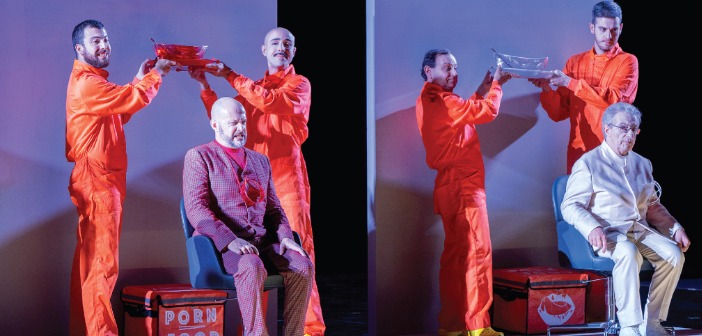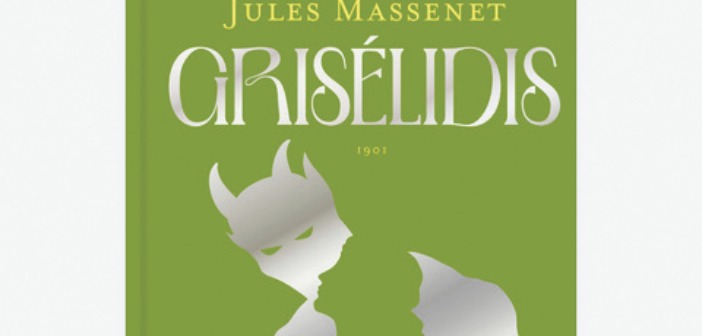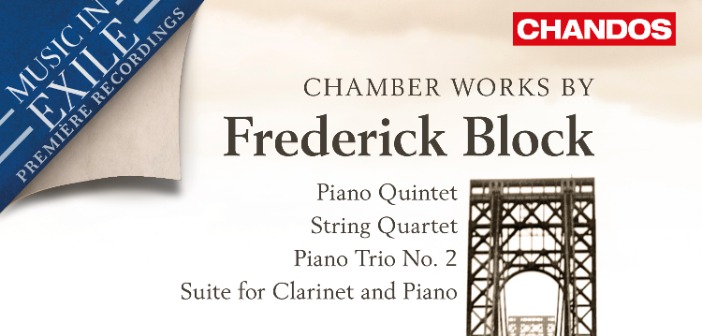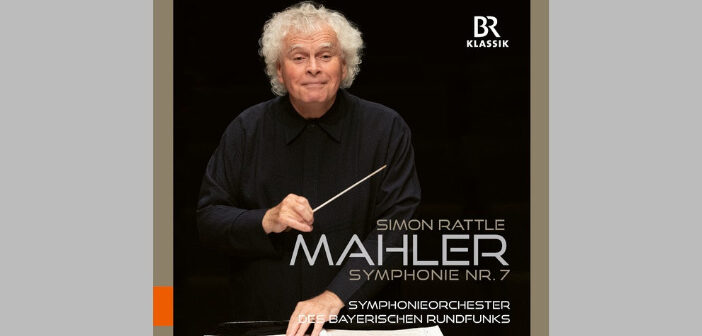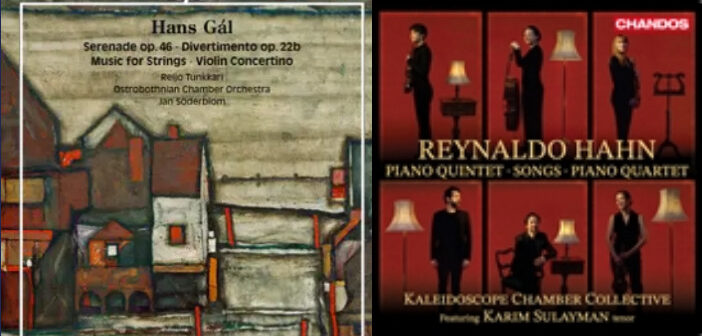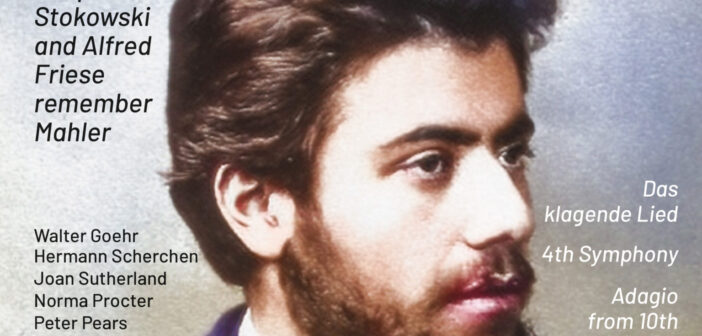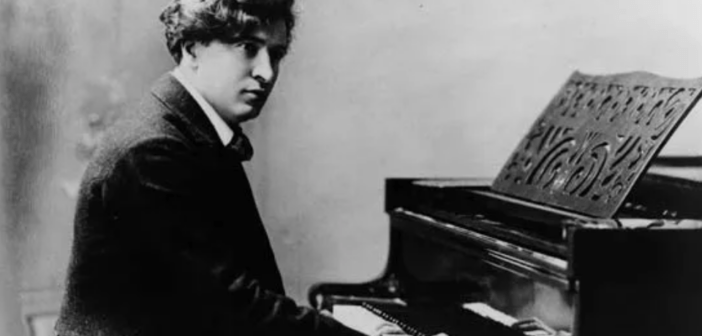The Egyptian soprano, based in London and Berlin, had a mix of western and Arabic classical songs on her debut album, illustrating musical connections around the Mediterranean. Her ease in both ethnicities was enviable. To change tracks from microtonal maqam precision to the lushness of Ravel’s Shéhérazade was a hair-raising act of cultural transcendence, achieved without a hair out of place. Fatma Said’s new album is pure German: Schubert, Mendelssohn, Schumann and Brahms. Hard to tell which she adores most. The opening track, ‘Ständchen’, has an arresting liquidity, only to be outshone by ‘Auf dem Wasser zu Singen’. Felix Mendelssohn’s…
Browsing: CD and Book Reviews

Donizetti: L’aio nell’imbarazzo Alessandro Corbelli (Giulio), Alex Esposito (Gregorio), Francesco Lucii (Enrico), Marilena Ruta (Gilda), Lorenzo Martelli (Pippetto), Caterina Dellaere (Leonarda); Orchestra and Chorus of the Donizetti Opera; Vincenzo Milletarì, conductor Naxos, 2024 Fans of Donizetti will love L’aio nell’imbarazzo, an opera buffa first performed in 1824, then subsequently revived throughout Europe for several years, making it the composer’s first real lasting success. But the work might also appeal to fans of Rossini, who at the time reigned supreme over Europe’s opera houses, prompting most contemporary composers to “do a Rossini.” The young Gaetano sometimes tries a little too hard…

Jules Massenet: Grisélidis Vannina Santoni, soprano; Julien Dran, tenor; Thomas Dolié, Tassis Christoyannis and Thibault de Damas, baritones; Antoinette Dennefeld and Adèle Charvet, mezzo-sopranos; Adrien Fournaison, bass. Orchestre national Montpellier Occitanie; Choeur Opéra National Montpellier Occitanie; Jean-Marie Zeitouni, conductor Bru Zane, 2024 Grisélidis is a conte lyrique in three acts with prologue by Jules Massenet. It premièred at the Opéra Comique in 1901 and enjoyed considerable success before dropping out of the repertoire. It’s peculiar in a couple of ways. Despite being written for the Comique, it’s mostly through-sung with just a few instances in which the singers switch to…

Carl Orff: Carmina Burana Alina Wunderlin, soprano; Max Emanuel Cencic, countertenor; Russell Braun, baritone; Tonhalle Orchester Zürich; Zürcher Sing-Akademie; Paavo Järvi, conductor Alpha Classics, 2024 What does one want from a new recording of a familiar, if idiosyncratic, piece like Carl Orff’s Carmina Burana with its curious mix of Latin, Old High German, Old French and lush Romanticism? I think the answer is a pulsating, exciting ride spiced with some humour and if it’s a bit vulgar, then that’s just part of the fun. That’s pretty much the overall impact of this new recording from Zürich on the Alpha Classics…

ARC Ensemble: Erika Raum and Marie Bérard, violins; Steven Dann, viola; Thomas Wiebe, cello; Joaquin Valdepeñas clarinet; Kevin Ahfat, piano Chandos, 2024 The Chamber Works of Frederick Block is ARC Ensemble’s latest album of music by forgotten and silenced artists. Jewish-Viennese composer Frederick Block’s career was shattered by the annexation of Austria by Germany in 1938. A traditionalist with a distaste for Schoenberg, Block’s music is thoroughly rooted in the Romantic tradition. Yet these pieces are in no way pastiches of a bygone era; they are constructed in a highly intricate and original musical language. ARC Ensemble has not only…

As the joke goes, symphony orchestras are mostly 19th-century cover bands. In jazz, the big bands provide that link to the past, with “ghost bands” surviving the disappearance of their leaders for many decades—yes, it is still possible to see a version of the Glenn Miller Orchestra live in 2025! However, if the Sun Ra Arkestra fits that description, it is indeed quite an unusual “ghost band.” This writer vividly recalls the sight of a dozen or so gentlemen (some quite elderly) dressed in colourful, shimmering robes, playing old swing charts and free-form freak-outs. From Morton Street in Philadelphia (Arkestra…
The seventh was the least understood of Mahler’s symphonies and the last to get recorded. Bruno Walter, Mahler’s closest apostle, never performed it. Otto Klemperer, next in line, distended it to twenty minutes over its regular length. At 75 minutes, it can tax an audience’s patience. The symphony has five movements, two of them designated ‘Night Music’, though not in the Mozart sense. The score requires a tenor horn, cowbells, guitar and mandolin. Arnold Schoenberg grasped these Klimt-like colours as the foundational palette of modernism and used the last two in his turning-point Serenade, opus 24. Hermann Scherchen, who made…
If you are about to step into a warm bath, put one of these on the player and submerse your January body in a fantasy world that never changes. What Hahn and Gal have in common, other than a one-syllable name, is a reluctance ever to be tempted beyond the musical language they were born into youth. Hahn, Venezuelan-born lover of Marcel Proust, composes remembrances of those lost times before the First World War. The string quartet and piano quintet on this album, each composed directly after a world war, might easily be mistaken for Fauré or Saint Saens, masquerading as Vinteuil…
The death of composer Alexander Goehr last August reminded obituarists of the vital contributions his refugee father Walter Goehr had made to insular British culture. Walter worked as a house conductor for EMI and for one of the BBC’s weaker orchestras. He is remembered chiefly for giving the 1953 UK premiere of Olivier Messiaen’s Turangalia Symphony, but he also introduced a gamut of novelties from Monteverdi to Mahler, Schoenberg and Stravinsky to Britten and Tippett. The first shock on hearing Das Klagende Lied and the fourth symphony is how intuitively he grasped Mahler’s unpredictable pauses and rhythmic shifts. He makes…
What’s the point in having a centenary if it doesn’t restore a reputation? A hundred years have passed since the German-Italian Busoni died in Berlin and, while we’ve heard his massive piano concerto in concerthalls during 1924, nothing much else has happened to change the general perception that Busoni was a formidable pianist with great ideas that did not necessarily translate into music of lasting value. Two albums of piano works reinforce that image. The German pianist Wolf Harden has reached volume 13 in his Naxos trawl of the complete works. While awed by his persistence and dedication, I find…



